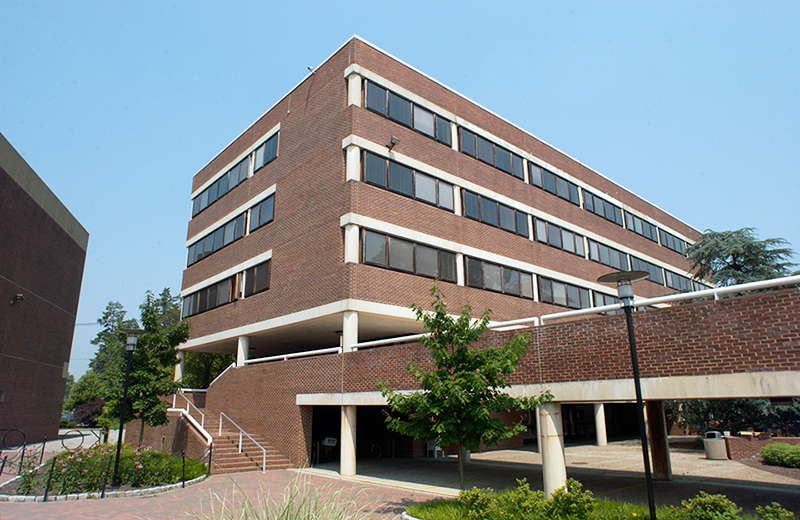
About Us

Welcome from the Chair
Since the Department of Linguistics and Cognitive Science at the University of Delaware was established in 1994, we have been unraveling the complexities of language and cognition. Explore our website to learn more about our academic programs and research opportunities for undergraduate and graduate students. We look forward to you joining us!
Mission
Our department's mission includes excellence in teaching, research, and service. Our teaching mission includes delivery of excellence in instruction in our doctoral program, masters program, and undergraduate major and minors, as well as our contribution to general education, multicultural education, discovery learning, second writing, and UD's first-year experience program for our freshmen majors.
Programs
We offer graduate programs leading to the M.A. degree in linguistics and cognitive science and the Ph.D. in linguistics. Our undergraduate programs include a B.S. in cognitive science and a B.A. in linguistics.
As part of a University-wide cognitive science community, the Department of Linguistics and Cognitive Science offers an interdisciplinary certificate in cognitive science as part of graduate degrees across schools and departments.
Interdisciplinary Focus
We also participate in the interdisciplinary Ph.D. program in neuroscience. We have ties to the Department of Communication Sciences and Disorders in UD's College of Health Sciences and the Department of Psychological and Brain Sciences in UD's College of Arts and Sciences.
Research
Our faculty and students conduct innovative research at laboratories in phonetics, phonology, syntax and psycholinguistics. Their research is supported by UD's Center for Biomedical and Brain Imaging, a state-of-the-art research facility that houses the first research-dedicated fMRI scanner in the state of Delaware.
We also greatly anticipate the opening of the new Science Center — an interdisciplinary science building that will catalyze cutting-edge research related to human disease, developmental disorders, neuroscience and human behavior— in fall 2024, and the development of a new mental health care clinic on the STAR campus.
— Robin Andreasen, Ph.D., Professor and Interim Chair, Department of Linguistics and Cognitive Science, University of Delaware
Visitor Information
The University of Delaware campus is located in Newark, Delaware, which is about 20 minutes away from Wilmington, an hour from either Philadelphia or Baltimore, two hours from Washington D.C., and two and a half hours from New York City.

The College’s Commitment to Diversity, Equity and Inclusion
Diversity, equity, and inclusion are significant parts of the University of Delaware's College of Arts and Sciences values and goals. The college's commitment to these values is not just evident in its student body but also in its faculty, staff, and curriculum, ensuring a fully inclusive experience. Through this steadfast dedication to diversity and inclusivity, the college continues to enrich its educational offerings, allowing each student to benefit from a wide array of viewpoints and experiences.
Department Statement on Diversity
We, the Department of Linguistics and Cognitive Science at the University of Delaware, embrace and celebrate diversity among peoples. We are committed to a climate of mutual respect among all individuals regardless of age, academic rank, culture, ethnicity, gender identity and expression, language, lived experience, nationality, physical and mental ability, race, religion, spiritual practice, sexual orientation, or socioeconomic status.
We recognize that members of marginalized groups are affected by oppression in many aspects of their lives. We commit to raising our collective voice to denounce bigotry, hatred and oppression in all its forms.
We aspire to create an academic community that fosters success in research, teaching, learning, and personal growth. These values are especially significant to the fields of linguistics and cognitive science. Our science benefits substantially from the range of linguistic experience and knowledge engendered by a diversity of backgrounds. It relies on free exchange of ideas and draws its strength from a diversity of perspectives on the human mind.
The Department aims to:
- Build trust and cultivate open dialogue among community members
- Foster a positive climate for diversity, for faculty and students alike, within the department
- Continue to educate ourselves on anti-racism, social justice, and equity issues
- Recognize issues of social diversity and inclusion via academic opportunities to engage in study related to anti-racism, social justice, and equity and inclusion
- Provide members of the department with access to resources pertaining to all of the above
We invite you to join us in committing to continual development of a learning environment that emphasizes and values diversity, equity and inclusion.

